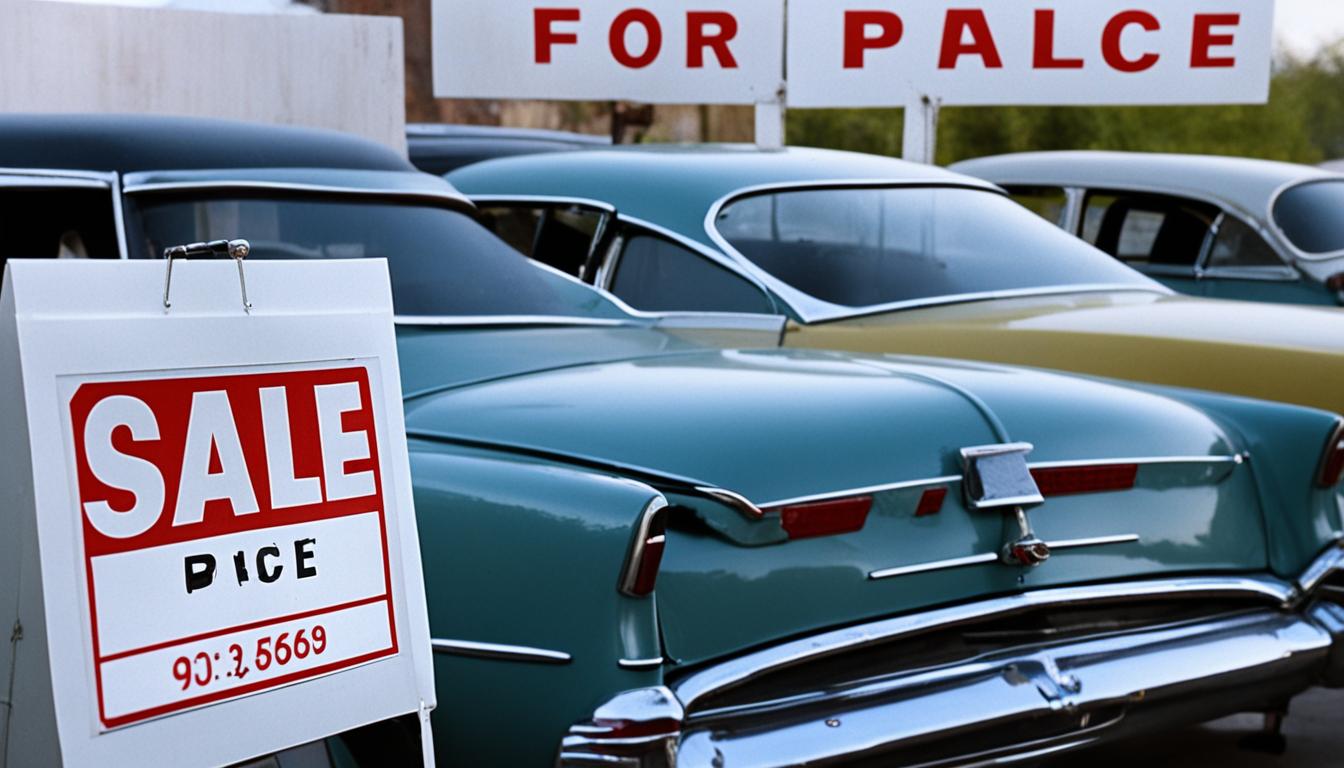In the dynamic world of car auctions, the term “reserve” plays a crucial role for both sellers and buyers. A reserve price is the minimum amount the seller is willing to accept for their vehicle. This reserved price is not disclosed to the bidders, creating an element of uncertainty throughout the auction process.
Understanding the concept of a reserve price is essential for anyone participating in a car auction. It allows sellers to protect their investment while providing buyers with the opportunity to compete for their desired vehicles. By setting a reserve, sellers can ensure their cars are not sold for less than their predetermined minimum value, maintaining the market worth of their assets.
As we delve deeper into the intricacies of car auctions, we’ll explore the definition and purpose of reserve prices, as well as how they are determined. This knowledge will empower you to make informed decisions, whether you’re a seller looking to maximize your returns or a buyer seeking to secure the best deal possible.
Understanding the Concept of Reserve Price
In the world of car auctions, the reserve price plays a crucial role in protecting the interests of both buyers and sellers. The reserve price is the lowest amount the seller is willing to accept for their vehicle at a car auction. This price is typically set by the seller in collaboration with the auction house, and it serves as a safety net to ensure that the car is not sold for an unacceptably low price.
Definition and Purpose of Reserve Price
The definition of reserve price at auction is the minimum price the seller is willing to accept for their vehicle. The purpose of reserve price in car auctions is to safeguard the seller from having their car sold for a price that is below their expectations or the fair market value. This helps maintain the integrity of the auction process and ensures that the seller is not left with a sale they are unhappy with.
How Reserve Prices are Determined
The process of how reserve price is set for car auctions involves a collaborative effort between the seller and the auction house. Several factors are taken into consideration, including:
- The current market value of the vehicle based on factors such as make, model, mileage, and condition
- The seller’s desired minimum sale price, taking into account their investment in the vehicle and any outstanding loans or fees
- The auction house’s assessment of the vehicle’s desirability and potential demand from buyers
- The overall market conditions and trends in the automotive industry
By carefully considering these variables, the seller and the auction house can establish a reserve price that balances the seller’s needs with the market’s expectations, ultimately ensuring a fair and transparent auction process.
“The reserve price is a critical component of the car auction process, allowing sellers to protect their interests while still attracting competitive bids from buyers.”
What Is Reserve Car Auction
A reserve car auction is a unique type of auction where the seller has set a minimum price they are willing to accept for the vehicle. This minimum price is known as the “reserve price.” If the bidding does not reach the reserve price during the auction, the car will not be sold. This contrasts with a “no reserve” auction, where the car will be sold to the highest bidder, regardless of the final bid amount.
The purpose of a reserve car auction is to ensure that the seller receives a fair price for their vehicle. By setting a reserve price, the seller can protect themselves from potentially low-ball offers that may not meet their expectations. This type of auction structure is particularly beneficial for sellers who have invested significant time and resources in maintaining and restoring a vehicle to a high standard.
How Does a Reserve Car Auction Work?
In a reserve car auction, the seller sets a confidential reserve price that is not disclosed to the bidders. As the auction progresses, the bids are displayed, but the reserve price remains hidden. If the highest bid reaches or exceeds the reserve price, the car is sold to the highest bidder. However, if the bidding falls short of the reserve price, the car is considered “unsold” and the seller has the option to either accept the highest bid or withdraw the vehicle from the auction.
- The seller sets a confidential reserve price, which is the minimum they are willing to accept for the vehicle.
- Bidders compete to purchase the vehicle, with the bids displayed during the auction.
- If the highest bid meets or exceeds the reserve price, the car is sold to the highest bidder.
- If the highest bid falls short of the reserve price, the car is considered “unsold,” and the seller can accept the highest offer or withdraw the vehicle.
The reserve car auction model allows sellers to maintain control over the minimum price they are willing to accept, while still benefiting from the competitive bidding process to potentially achieve a higher sale price.
“The reserve price in a car auction is the seller’s insurance policy to ensure they get a fair price for their vehicle.”

Compared to a no-reserve auction, a reserve car auction offers sellers more flexibility and control over the sale of their vehicle. While the bidding may not reach the desired reserve price, the seller has the option to accept the highest offer or withdraw the car from the auction altogether. This flexibility can be particularly valuable for sellers who have rare, high-value, or extensively restored vehicles in their possession.
Advantages of Setting a Reserve Price
Setting a reserve price at a car auction offers several key benefits for sellers. Firstly, it protects them from receiving low-ball offers that may not accurately reflect the true value of the vehicle. By establishing a minimum acceptable price, we can ensure that the car is not sold for an artificially low amount, preserving the overall market value.
Protecting Sellers from Low-Ball Offers
The reserve price acts as a safeguard, preventing sellers from being pressured into accepting offers that are significantly below the car’s worth. This is particularly important for rare or high-end vehicles, where maintaining the market value is crucial. With a reserve price in place, sellers can have the confidence to hold out for a fair and reasonable offer that aligns with their expectations.
Maintaining Market Value of the Vehicle
Implementing a reserve price at a car auction also helps to maintain the overall market value of the vehicle. By ensuring that the car is not sold for an unreasonably low price, we can prevent distortions in the market that could potentially impact the value of similar vehicles. This benefits both the seller and the broader automotive industry, preserving the integrity of the auction process and the fair assessment of vehicle worth.











